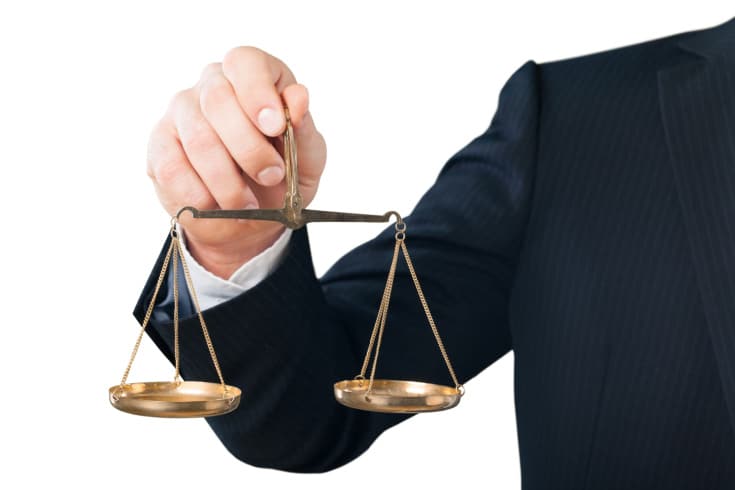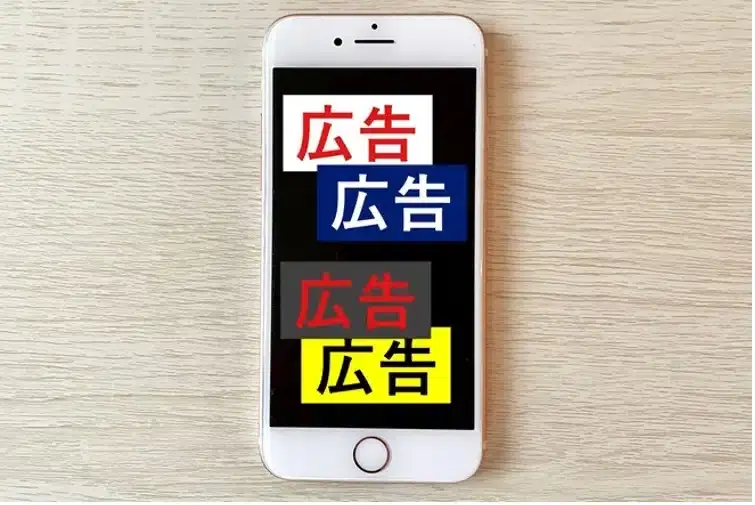What is a 'Japanese Directors and Officers Liability Insurance' Contract? Explaining the Procedures after the Amendment of the Japanese Companies Act and the Differences from Corporate Indemnification

The amendment to the Japanese Companies Act in the first year of Reiwa (2019) introduced new provisions regarding “Directors and Officers (D&O) Liability Insurance Contracts.” While the name of the provision may sound unfamiliar, in simple terms, it is a system that allows for the payment of damages claims arising from the actions of corporate directors during their duties to be covered by insurance.
However, the procedural aspect is complex, and many people may not fully understand the content of these provisions. Moreover, there is a similar system called “company indemnification” that also aims to cover the financial liabilities of directors and officers, and some may be confused about the differences between the two clauses.
Due to the amendment, certain procedures have been established that must be followed, so it is necessary to deepen your understanding of the Directors and Officers Liability Insurance Contracts.
This article will explain the overview of Directors and Officers Liability Insurance Contracts and the differences from company indemnification.
What is Directors and Officers (D&O) Liability Insurance?

The Significance of Directors and Officers Liability Insurance Contracts
“Directors and Officers (D&O) Liability Insurance Contracts” refer to insurance policies that provide coverage for damages incurred due to claims made against directors and officers in the performance of their duties.
This is stipulated in Article 430-3 of the Japanese Companies Act (Revised in the first year of Reiwa (2019)).
(Insurance contracts concluded for the benefit of directors and officers)
Article 430-3 A stock company must decide on the content of an insurance contract concluded with an insurer, which stipulates that the insurer will compensate for damages that may arise due to the directors and officers being held responsible for the execution of their duties or facing claims related to the pursuit of such responsibility, with the directors and officers as the insured parties (excluding those defined by Ministry of Justice ordinance as not significantly impairing the propriety of the execution of the duties of the insured directors and officers by concluding such insurance contracts. Hereinafter referred to as “Directors and Officers Liability Insurance Contracts”), based on a resolution of the shareholders’ meeting (or the board of directors in the case of a company with a board of directors).
Companies Act | e-Gov Law Search[ja]
This provision primarily applies to Directors and Officers (D&O) Liability Insurance.
The following significances are recognized for Directors and Officers Liability Insurance Contracts:
- Securing talented individuals to serve as directors and officers for the company.
- Providing appropriate incentives to directors and officers so that they do not excessively fear the responsibility of compensating for damages in the execution of their duties, which could otherwise lead to a reluctance to perform their roles effectively.
In light of these benefits, Directors and Officers Liability Insurance Contracts have become widely adopted in practice, especially among listed companies.
Background of the Regulation of Director and Officer (D&O) Liability Insurance Contracts under the Revised Companies Act
Provisions related to Director and Officer (D&O) Liability Insurance contracts were established with the purpose of ensuring the appropriateness of contract contents through the development of necessary procedures.
This was due to the following issues identified with D&O Liability Insurance contracts:
- Depending on the terms of the D&O insurance, there is a risk that it could undermine the propriety of the execution of duties by directors and officers.
- For insurance contracts that cover directors or executive officers as insured parties, there is a potential conflict of interest with the corporation, which could fall under the category of interest-conflicting transactions as per Article 356, Paragraph 1, Item 3 of the Japanese Companies Act.
In light of such circumstances, the necessity to clarify the procedures that must be undertaken by the company when entering into D&O insurance contracts has been pointed out. Consequently, new regulations were established by the revised Companies Act in the first year of Reiwa (2019). The provisions related to D&O Liability Insurance contracts can be considered as newly set rules to ensure that the insurance is appropriately managed.
Types of Applicable Insurance
There are insurances that do and do not fall under the category of Directors and Officers (D&O) Liability Insurance contracts. These are classified based on Article 430-3, Paragraph 1 of the Japanese Companies Act (2005).
The insurances that are applicable to D&O Liability Insurance contracts include D&O insurance and similar policies. These contracts fit the definition set forth in Article 430-3, Paragraph 1 of the Japanese Companies Act.
On the other hand, insurances that do not fall under D&O Liability Insurance contracts are specified in the proviso of Article 430-3, Paragraph 1 of the Japanese Companies Act. The insurances defined by the Ministry of Justice Ordinance referred to here are listed in Article 115-2 of the Enforcement Regulations of the Japanese Companies Act. For example, the following types of insurance do not qualify as D&O Liability Insurance contracts:
- Those primarily intended to compensate for damages to the company (e.g., Product Liability (PL) insurance, Commercial General Liability (CGL) insurance)
- Those unrelated to the breach of duties by directors and officers (e.g., Automobile Liability insurance, Overseas Travel insurance)
It is important to note that not all insurances that cover directors and officers are classified as D&O Liability Insurance contracts.
Procedures for Determining the Contents of Directors and Officers (D&O) Liability Insurance Contracts

Procedures for determining the contents of new Directors and Officers (D&O) Liability Insurance Contracts have been established under Article 430-3, Paragraph 1 of the Japanese Companies Act.
According to Article 430-3, Paragraph 1 of the Japanese Companies Act, when a stock company decides on the contents of a Directors and Officers (D&O) Liability Insurance Contract, it must obtain a resolution from the shareholders’ meeting (or the board of directors in the case of companies with a board of directors). This is in accordance with the discipline similar to the conflict of interest transactions under Article 356 of the Japanese Companies Act.
(Restrictions on Competition and Conflict of Interest Transactions)
Article 356 Directors must disclose important facts regarding the transaction in question at the shareholders’ meeting and obtain its approval in the following cases:
(Omitted)
Item 3 When the stock company intends to guarantee the obligations of a director or engage in transactions that conflict with the interests of the company and the director, other than with persons other than directors.
Japanese Companies Act | e-Gov Law Search[ja]
Directors and Officers (D&O) Liability Insurance Contracts can have a high degree of conflict of interest depending on their contents. Moreover, since these contents may affect the propriety of the directors’ and officers’ execution of duties, such discipline has been established.
When deciding or changing the contents of a Directors and Officers (D&O) Liability Insurance Contract, it is important to understand that a resolution from either the shareholders’ meeting or the board of directors is required.
Furthermore, the provisions regarding conflict of interest transactions under Article 356 of the Japanese Companies Act do not apply to the conclusion of insurance contracts that insure directors or executive officers. (Japanese Companies Act Article 430-3, Paragraph 2)
This is to avoid duplication of rules due to the new discipline similar to conflict of interest transactions established under Article 430-3, Paragraph 1 of the Japanese Companies Act.
Disclosure of Information Regarding Directors and Officers Liability Insurance Contracts
Due to amendments in the Japanese Companies Act (会社法), two new disclosure requirements have been established concerning Directors and Officers (D&O) Liability Insurance Contracts.
- Disclosure in the annual business report of public companies
- Disclosure in the reference documents for the general shareholders’ meeting concerning the appointment of directors
Let’s take a closer look at each of these.
In the Annual Business Report of Public Companies
For public companies, as of the fiscal year-end, it is necessary to include the following information in the annual business report, as stipulated by Article 121-2 of the Japanese Companies Act Enforcement Regulations:
- The scope of insured persons (names do not need to be listed)
- A summary of the insurance contract’s contents
Regarding the second point, a summary of the insurance contract’s contents, this specifically includes the following:
- The actual proportion of the insurance premium borne by the insured persons
- An overview of the insurance events that are subject to indemnification
- If measures have been taken to ensure that the execution of the directors’ duties is not compromised by the insurance contract, the content of such measures
If your company is a public company, make sure to check that there are no omissions in the items disclosed.
In the Reference Documents for the General Shareholders’ Meeting Concerning the Appointment of Directors
At the general shareholders’ meeting concerning the appointment of directors, if an insurance contract targeting the candidates has been concluded or is planned to be concluded, disclosure must be made.
As part of the disclosure items in the reference documents for the general shareholders’ meeting concerning the appointment of directors, include a summary of the Directors and Officers Liability Insurance Contract.
Differences Between Directors and Officers Liability Insurance and Corporate Indemnification
Under the revised Japanese Companies Act (Article 430-2), new regulations concerning corporate indemnification have also been established.
Directors and Officers (D&O) Liability Insurance and corporate indemnification share the following commonalities, making them seem like similar systems:
- Both systems are designed to alleviate the financial burden on directors and officers.
- Both systems create a structurally conflicting interest between the company and its directors and officers.
At first glance, the two systems may not seem very different, but there are several distinctions. Let’s organize these differences to understand how to use each system appropriately.
Contracting Parties
The contracting parties differ between D&O Liability Insurance and corporate indemnification.
For D&O Liability Insurance, the parties to the “insurance contract” are the company and the insurance provider. The company is responsible for paying the insurance premiums to the insurance provider.
On the other hand, the parties involved in corporate indemnification are the company and its directors and officers.
It’s important to clarify the difference in contracting parties from the company’s perspective.
Entity Providing Indemnification
The entity responsible for covering costs and compensating for damages differs between the two systems.
In D&O Liability Insurance, the insurance provider is the entity that provides indemnification. The company pays the insurance premiums, and if the directors incur financial burdens, the insurance provider pays them the insurance money.
In contrast, with corporate indemnification, the company itself is the entity providing indemnification. The company compensates for any damages incurred by the directors, creating a more direct conflict of interest between the directors and the company.
Scope of Indemnification
There are also differences in what each system can cover for indemnification.
The scope of indemnification under D&O Liability Insurance is determined by the insurance contract.
Whereas, the scope of corporate indemnification is determined within the limits set by the Japanese Companies Act (Article 430-2, Paragraph 2).
It’s essential to review the rules of each system.
Extent of Indemnification
The extent to which each system can provide indemnification also varies.
With D&O Liability Insurance, it is not guaranteed that the full amount of damages or costs will be covered due to deductibles, exclusion clauses, and payment limits set by insurance law or the contract itself.
However, with corporate indemnification, in theory, it is possible to cover the full amount of damages or costs as long as it does not contravene the Japanese Companies Act (Article 430-2).
Make sure to clearly understand the extent of coverage before entering into a contract.
Advance Payment of Costs
Whether advance payment of costs is possible varies by system. Under D&O Liability Insurance, advance payment of costs is usually not possible. However, with corporate indemnification, advance payment of costs can be made.
Should You Use Directors and Officers Liability Insurance or Company Indemnification?

It is essential to consider the appropriate context for using either Directors and Officers (D&O) Liability Insurance or company indemnification.
Both systems are fundamentally used for the same purpose, and the differences mentioned above exist to complement each other.
For instance, even if a company has a D&O Liability Insurance policy in place, it can use company indemnification to cover losses that the insurance does not fully address.
Furthermore, to increase the payout limit of D&O insurance, a company would have to pay a higher insurance premium. However, by utilizing company indemnification, a company can manage loss coverage without the burden of additional insurance premiums.
Thus, choosing between Directors and Officers Liability Insurance and company indemnification is not a matter of either/or. Consider implementing each option based on their respective advantages according to the situation.
Summary: Understanding and Verifying the Provisions of Directors and Officers (D&O) Liability Insurance Contracts is Essential
With the revision of the Japanese Companies Act in the first year of Reiwa (2019), new provisions regarding Directors and Officers (D&O) Liability Insurance contracts were established, clarifying the procedures involved. This has made it easier to ensure the propriety of the execution of duties by directors and officers.
Similarly, the newly regulated system of company compensation, while having several differences from the D&O Liability Insurance contracts, should be considered for use after examining the applicable scenarios.
Organize the rules set forth in the Japanese Companies Act and consider how to leverage the advantages of each system when concluding contracts.
In concluding insurance contracts, understanding complex rules and verifying procedures is unavoidable. For a steady progression in contract conclusion, we recommend seeking advice from experts.
Services Offered by Our Firm
Monolith Law Office is a law firm with high expertise in both IT, particularly the internet, and legal matters. We provide contract drafting and review services for a wide range of clients, from Tokyo Stock Exchange-listed companies to venture businesses. For more information on contract drafting and review, please refer to the article below.
Areas of practice at Monolith Law Office: Contract Drafting & Review, etc.[ja]
Category: General Corporate
Tag: General CorporateM&A





















